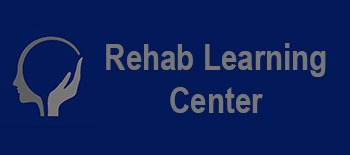Admiration

Admiration is defined as ‘a feeling of respect and approval.’1 No doubt we all admire someone(s). This is a good thing. Mostly.
One of the many benefits of interacting with students and young clinicians is seeing this admiration develop and grow.

I never specifically ask these colleagues whom they admire as just getting to know them personally affords this information to be revealed naturally. It is quite frequent that we will have conversations, especially this time of year (relative to APTA Combined Sections Meeting) and students being on their final clinical rotations that this admiration becomes apparent. My colleagues are enamored with their CI, someone on social media, someone speaking at CSM, someone working with a sports team, someone speaking at their SIG meeting on Zoom (by the way, how awesome is it that this type of thing is available).


Unfortunately, I almost always leave these meetings slightly sad. I wonder if some of the sadness is that these conversations never resulted in admiration directed my way. After all, we all have egos. Also, they are admiring someone who doesn’t even have an alphabet soup of credentials like I do (PT, Ph.D., ATC, MEd, OCS, SCS, FAAOMPT, CSCS). Seriously, there cannot be more than a couple of us in the entire world. Look at me! Maybe I should stop telling them how broken I am and how many mistakes I have made?
I remember this one time (not in band camp) where I was speaking at another university, and one of the students came up with a massive grin on his face and seemed nervous. Ah, there is my admirer. Come forth, young one. Let me impart wisdom. They asked me if one of the colleagues that I work with was as funny in person as they seem on social media. It crushed me! Of course I told them no, that person really is an idiot and can’t even dress appropriately (if I am not winning here-neither are they).

Seriously, I believe I deflected the conversation and tucked my tail. This has happened prior. I know the routine. A few minutes later, I realized that this student had a person I admired at their daily disposal. An excellent teacher and researcher. A great and humble person. The quote “an expert is just some guy from out of town” by Mark Twain seemed to ring appropriately.
I could go on all day about my slights, but this is really about the bigger picture and (hopefully) some advice for my younger colleagues. Admiration is also defined as “a social emotion felt by observing people of competence, talent, or skill exceeding standards.” In other words, respecting someone, you interpret to excel in what you are involved or interested in.
One of the many benefits of social media is that it allows us to interact with many folks that we would likely never have without it. This is good. Mostly. What does become apparent is that similar admirations are seen as those I just described. Yes, again, I am ignored, but this truly is not about me (although the more I mention myself-you should wonder).
I always ponder when I see admiration being shown to another person. I respect it. I am old, though, and deep in the “get off my lawn” phase of my life. My thoughts go to how this admiration will play out. In other words, are we admiring that person for their 280-character tweet or 8-minute video when perhaps much more context would show us a much different side to such a person?
Admiring someone that we barely know intrigues me. Would our admiration change if we knew that person? I suspect this is a variable answer.
I also suspect that we often look at the ‘expert out of town.’
I suspect there are persons directly in our day-to-day lives that have earned the admiration more than most of those we show our respect for.
I admire my family: my wife for the 12-year medical-emotional-stressful fight she continues to win, my son for his quiet battling of adversaries, my daughter for choosing her own career path when another would have been easier, and my parents for their humble demonstration of work ethic that I was fortunate enough to be exposed to.
Of course, I also have professional colleagues that I admire. I am a significantly flawed person that requires such. I admire many people and the qualities they possess. I just bet on sample sizes. I know what I have with my family members and friends. I have not seen others I admire in as many difficult situations to see how they handled them. It is perfectly normal to have personal and professional role models. Just weigh them appropriately.
I suspect our ‘circle’ of those we should most admire is relatively tiny. These hardly known individuals that we tend to admire are persuasive (intended or not). They are also typically intelligent and worthy of admiration, but perhaps the level needs adjusting?
Additionally, I wonder if admiration of our social media ‘friends’ detracts from our growth.
I ponder a quote by Friedrich Nietzsche, “Admiration for a quality or an art can be so strong that it deters us from striving to possess it.” My thoughts go to some wordplay of such a great quote to wonder if ‘admiration for what another person is or has accomplished can be so strong that it deters us from realizing our potential and striving to our highest accomplishments.’ Do we realize that we are: important, unique, talented, and irreplaceable at what WE do? You will never be that person you admire in that space and time. You will never experience the same successes, failures, and experiences they have. Be you.
I would be remiss not to be reflective here as well. The admiration I have for those outside my inner circle is ‘different’ today than when I was a younger clinician. I could use many words in an attempt to describe this current admiration. Still, I think a quote by William Arthur Ward captures the jest of it, “Blessed is he who has learned to admire but not envy, to follow but not imitate, to praise but not flatter, and to lead but not manipulate.” That person you admire on social media has shown their negative side to someone(s) in a snapshot of time. We all do. How those situations play out requires context and larger sample size to determine how much you should genuinely admire them—something to ponder.
TL;DR
- Admiration itself is excellent; its directed target(s) is worthy of consideration.
- I suspect you have awesome loved ones who have taught you many lessons. Let them in on what you have learned and your admiration.
- Non-family individuals you admire can teach you a lot, but their interaction with you is a paragraph in an enormous novel.
- I am grumpy, and ‘get off my lawn’ is a current life mantra. Sorry for this revelation.
- If you can deal with this and want to grow with others that are not afraid of exposing their limitations, consider the Rehab Learning Center Academy.
Thanks for reading! Take care!

